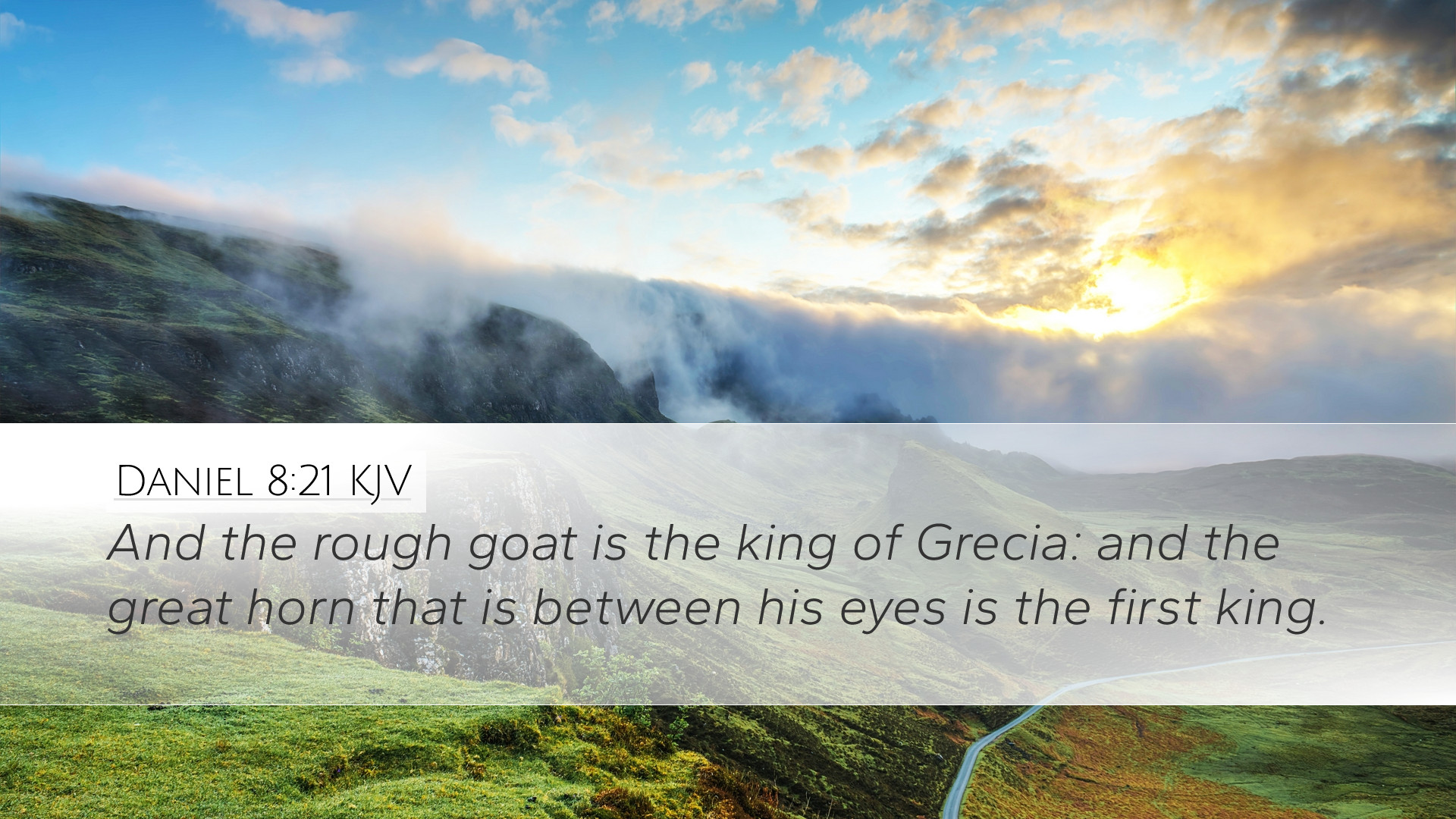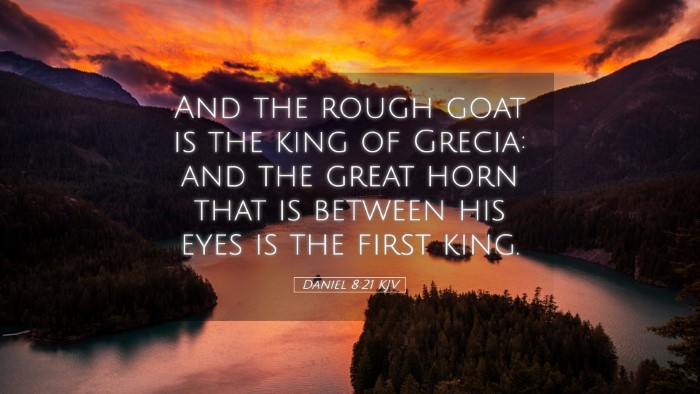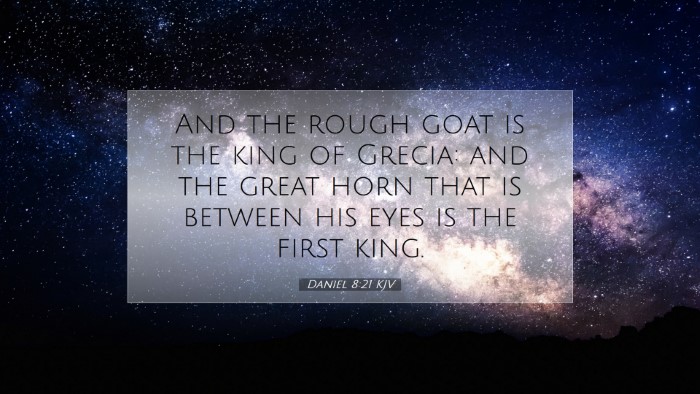Commentary on Daniel 8:21
Verse Context: Daniel 8:21 states, "And the rough goat is the king of Greece: and the great horn that is between his eyes is the first king." This verse is situated in a prophetic vision experienced by Daniel, where he sees various beasts representing kingdoms and rulers throughout history, with the rough goat symbolizing Greece and its first king, often interpreted as Alexander the Great.
Historical Background
To properly grasp the significance of this verse, one must understand the historical context of the Medo-Persian Empire's transition to Greek dominion. The "rough goat" imagery effectively represents the aggressive and swift nature of Greek conquest under its leader, which markedly contrasts with the previous empires.
Commentary Insights
Matthew Henry's Commentary
Matthew Henry outlines that the 'rough goat' symbolizes the king of Greece, with emphasis on the aggressive and turbulent nature of its territory and influence. He notes that the characteristics of the goat, specifically its roughness, symbolize the tumultuous rise of Greece as a significant power in the ancient world. The 'great horn' illustrates Alexander the Great's singular prominence, highlighting his unparalleled conquests and rapid expansion across Persia and beyond.
Albert Barnes' Analysis
Albert Barnes expounds on the representation of the goat as Greece, asserting that the 'great horn' is a clear reference to Alexander himself. He mentions the preeminence of Alexander's rule during the Greek Empire's golden age. Barnes argues that Alexander's swift military campaigns and strategies were tantamount to the aggressive nature of the goat depicted in the vision. Furthermore, he provides deeper insights into how the destruction of the Persian Empire paved the way for Greek culture and philosophy to flourish.
Adam Clarke's Interpretation
Adam Clarke places significant emphasis on the prophetic nature of Daniel's vision, explaining that God revealed the future events concerning Persia and Greece to impart hope and reassurance to the Jewish people during their exile. He elaborates on how the transition from the 'ram' (Persia) to the 'goat' (Greece) signifies a change in power dynamics that would eventually affect the Jewish people. Clarke highlights that this prophecy's fulfillment in the rise of Alexander serves as a testament to God's sovereignty over nations and kingdoms.
Theological Implications
This verse not only records a historical account but invites reflection on God's governance over human affairs. The portrayal of Greece as a 'rough goat' indicates that while empires may rise and fall, God's eternal plan unfolds through these events.
Prophecy and Fulfillment
- Divine Sovereignty: The clear identification of the goat as Greece serves to reinforce the theme of divine sovereignty in Biblical prophecy. It shows that God's plans are meticulously executed in the timing and details of human history.
- Lessons for Today: The implications of prophecy can encourage contemporary believers to trust in God's purposes, even amidst seemingly chaotic global events. Just as historical powers have risen and fallen, present-day leaders and nations are also under God's authority.
Practical Application
For pastors and theologians, this verse serves as a poignant reminder of the importance of understanding the interplay between divine prophecy and human leadership. In preaching or teaching, the nuances of how prophecy functioned in the Old Testament can provide insights into God's active role in the world.
Conclusion
In summary, Daniel 8:21, focusing on the 'rough goat' as the king of Greece, offers rich layers of meaning for scholars and believers alike. Drawing from historical context and insights from well-respected commentators, it emphasizes God's overarching plan and encourages a deeper reflection on His providence in history. By understanding this verse, we can gain a comprehensive perspective on the interaction between divine prophecy and historical events.


